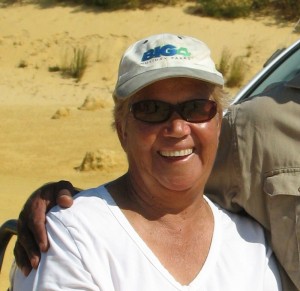Martha Borinelli talks about the Noongar culture of sharing

Martha Borinelli
Audio Recording
Martha Borinelli-Culture of sharing
Audio Transcript
Henry Cox: So even under those conditions, its quite interesting though that they would have shared their food with some people that were obviously – some other Aboriginal people that were obviously known to them, even though all they had was food, obviously part of that Noongar culture is to share whatever it is you’ve got.
Martha Borinelli: Whatever you got, yeah, no matter what – even today’s society if an Aboriginal go out hunting and they’ve got kangaroo or something … well it’ll be shared around. You know, they go around, they share their food. And Aboriginal traditional ways is if a kid just walking down the street, a child walks down the street and – it’s getting dark and someone – one of the ladies says, you know, the parent, “You kids you shouldn’t be walking around, get back in here”, you know, and they’ll look after them for the night, give them a bed and feed them for the night and then in the morning they send them home and feed them. But that’s how close knitted you know, an Aboriginal family, they won’t let anyone go astray or let anyone out of their sight or in danger or anything like that. They make sure they’re protected and fed – and give them a bed for the night. So they were very, very sharing – very, very sharing people and very close-knitted families.
From: Martha Borinelli, interview for South West Aboriginal Land and Sea Council, 15 May 2007
Protocols
SWALSC followed cultural protocols to obtain permission to use this oral history on the website. It is also protected by copyright law and may only be used for private study, research, criticism or review. If you would like to use it for any commercial purposes, including publication, making copies for sale, or modifying it please contact SWALSC on reception@noongar.org.au or Level 2, 100 Royal Street, East Perth WA 6004.
Note: In some cases the written transcript has been edited with permission from the person interviewed and may differ slightly from the audio recording.
Permission to use this audio recording kindly granted by Carina Ward, Mark Borinelli, Sergio Borinelli and Andrew Borinelli